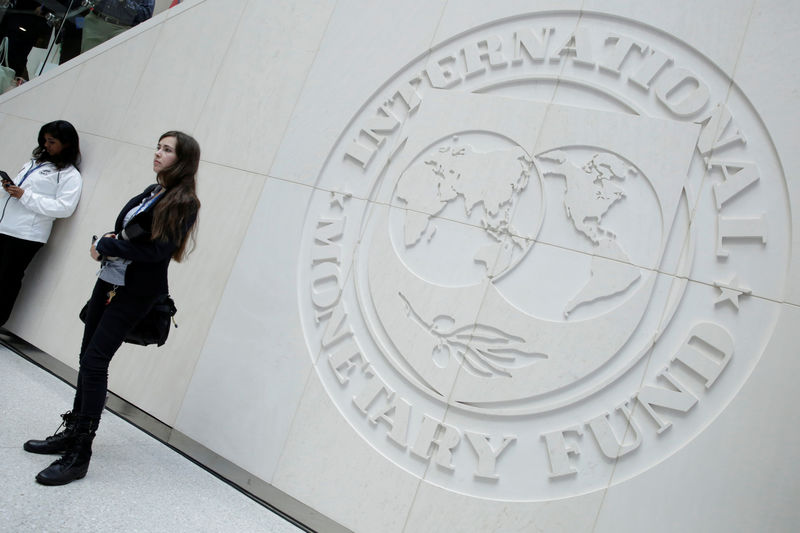(Bloomberg Opinion) -- The world’s finance ministers and central bank governors, gathered in Washington for meetings of the International Monetary Fund and the World Bank, were assigned some grim reading this week. The IMF’s new forecasts predict a further slowing of the global expansion, and warn of serious downside risks as well.
No single factor accounts for this cloud over the world’s economic prospects — but one glaring and easily avoidable error is deeply implicated. Efforts to liberalize trade, which paused in the past decade, have now moved sharply into reverse, thanks to the disruptive interventions of President Donald Trump. There’s never a good time to raise barriers against imports, but it would be hard to think of a worse time than this.
The expansion since the crash of 2008 was already unimpressive. Now, the IMF’s economists expect growth in the U.S. to fall to 2.3 percent this year and 1.9 percent in 2020. The figures for the euro area are worse (1.3 percent and 1.5 percent respectively) and for Japan worse still (1.0 percent and 0.5 percent). Growth in emerging-market and developing economies is expected to be better, on average, at between 4 percent and 5 percent — but this too is disappointing, bearing in mind the opportunities they have for catching up to the advanced economies.
The situation in Europe looks especially hazardous. Germany’s economy has stumbled lately, and Italy is contending with its third recession in the space of a decade. Financial institutions in both countries are under pressure, and the effects of bank failures could radiate across the European Union. Should the need arise, countries in the euro area are poorly equipped to respond with fiscal stimulus. On top of everything else, the ongoing Brexit farce is holding back the U.K. economy and depressing prospects among Britain’s main trading partners.
Uncertainty and lack of business confidence persist almost everywhere, investment has been weak, and in many countries financial stresses haven’t been dealt with — despite low interest rates. This too limits policy options for responding to the next downturn.
The best remedies for weak investment, sluggish growth and less than full employment vary from case to case. Europe needs to think hard about collective fiscal policy. Central banks need to question their assumptions about monetary policy when low inflation persists. All these things are challenging — but restoring the consensus on liberal trade shouldn’t be.
Lower trade barriers benefit consumers directly. Removing the threat that supply chains might be disrupted by trade disputes and subsequent cycles of retaliation would spur confidence and investment. Legitimate trade disagreements do arise, but there are well-established mechanisms for dealing with these without causing needless economic damage.
Perhaps it’s futile to draw these points to President Trump’s attention. But Congress could and should act to reclaim trade policy from an administration that isn’t competent to run it. Meanwhile U.S. trading partners ought, in their own interests, to be as forbearing as politics allows when it comes to retaliating against Trump’s provocations — doing what they can to maintain the liberal trading order, and building ambitious new arrangements like the Trans-Pacific Partnership that, in due course, the U.S. will want to join.
The consensus for liberal trade is wounded but not yet dead. Reviving it would be the best and easiest way to put global growth back on track.
—Editors: Clive Crook, Mary Duenwald.
To contact the senior editor responsible for Bloomberg Opinion’s editorials: David Shipley at davidshipley@bloomberg.net, .
Editorials are written by the Bloomberg Opinion editorial board.
©2019 Bloomberg L.P.
